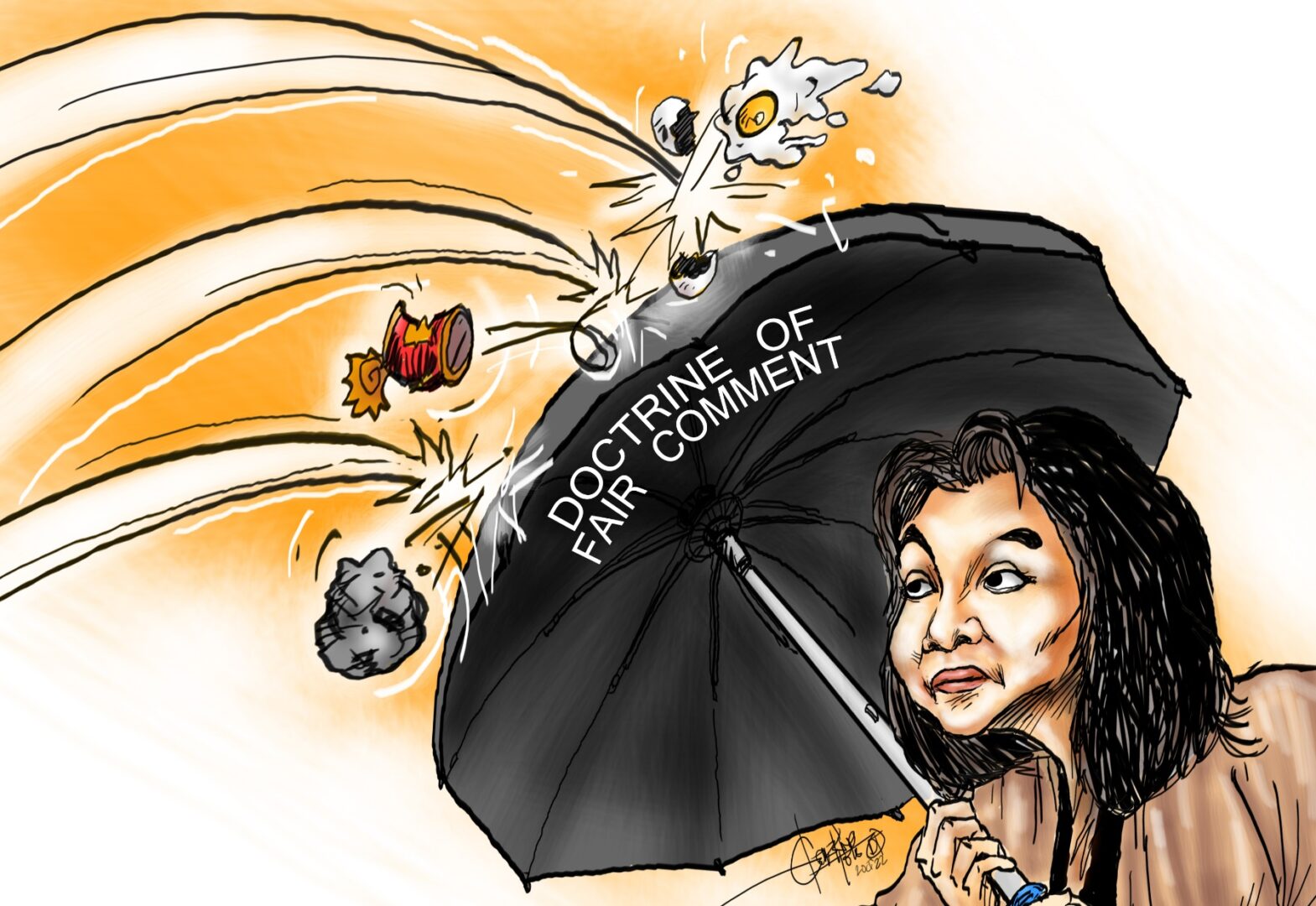Lorraine Badoy, the former spokesperson of the National Task Force to End Local Communist Armed Conflict, is now the subject of criticism by trial court judges, communist sympathizers, radical organizations, and opinionated personalities.
Last week, Manila Regional Trial Court Judge Marlo Magdoza-Malagar dismissed a petition filed in 2018 by the Department of Justice, which sought a judicial declaration that the Communist Party of the Philippines and its armed wing, the New People’s Army, are terrorist organizations.
The DoJ cited numerous atrocities committed by the CPP-NPA, including five murders, an assassination attempt, an abduction, an ambuscade and rampant arson, all in Mindanao.
Malagar ruled that the CPP-NPA are rebel groups, not terrorist organizations. She said the numerous atrocities of the CPP-NPA did not cause “widespread and extraordinary fear and panic,” because they were simply “pocket and sporadic” and “ripples in a much larger pond,” which occurred in limited areas in Mindanao.
Badoy was infuriated with the decision. She called Malagar a friend and ally of the CPP-NPA. In an obvious hyperbole, Badoy said that if she killed Malagar in the belief that allies of the CPP-NPA do not deserve to live, she will seek leniency.
Trial court judges, communists and their sympathizers and several publicity-seeking lawyers ganged up on Badoy for that remark. They accused Badoy of “red-tagging” Malagar.
Among those who scored Badoy were Neri Colmenares, a three-time defeated senatorial candidate, and former chief justice Maria Lourdes Sereno, the ambitious ex-jurist with the infamous and embarrassing distinction of having been kicked out of office in 2018 by her own colleagues in the Supreme Court.
Meanwhile, Malagar seems to be basking in the sudden publicity she has generated unto herself because of this development.
Truth to tell, it’s Badoy, not Malagar, who is the victim of mob rule.
The decision of a court is open to fair comment and criticism by the public. Anybody, Badoy included, who believes that a court ruling is legally untenable may criticize that ruling. It’s an exercise of the constitutional right of free speech.
Besides, Malagar’s decision is seen by many as legally unsound. It seems that Malagar has to see the entire island of Mindanao on fire before she declares the CPP-NPA terrorist organizations.
The CPP-NPA is determined to overthrow the government by violent means. In fact, the NPA is a private army organized for that purpose.
CPP-NPA cadres are responsible for the bombing of the Liberal Party proclamation rally at Plaza Miranda in Manila in 1971. The communists and their LP allies conveniently blamed the ensuing carnage on then President Ferdinand Marcos Sr. Malagar herself appears to be aware of the bombing incident.
The communists are also known for summary executions within their own ranks. They also have their infamous “sparrow units,” which specialized in killing policemen everywhere in the late part of the previous century.
Cadres of the CPP-NPA extort “revolutionary taxes” from businessmen and enterprises operating in the Philippine countryside. Those cadres threaten to use violence on anyone who does not pay up. That racket is public knowledge.
All those atrocities are enough reasons to designate the CPP-NPA as terrorist organizations. Why those atrocities escaped Malagar’s notice is a mystery.
Taken in its proper context, Badoy’s supposed threat against Malagar is an obvious exaggeration. It falls within the ambit of satire which, as jurisprudence points out, constitutes protected free speech.
Badoy’s public statements are also protected free speech under the doctrine of fair comment established in Philippine jurisprudence as early as 1918.
Red-tagging is not a criminal offense. Even if a law declares it a crime, that law suffers from constitutional infirmity, particularly if the subject of criticism is a public officer or a public figure. A judge is a public officer.
Nobody forced Malagar to be a judge. Being so, Malagar should have known that her ruling is bound to elicit public criticism, warranted or otherwise.
